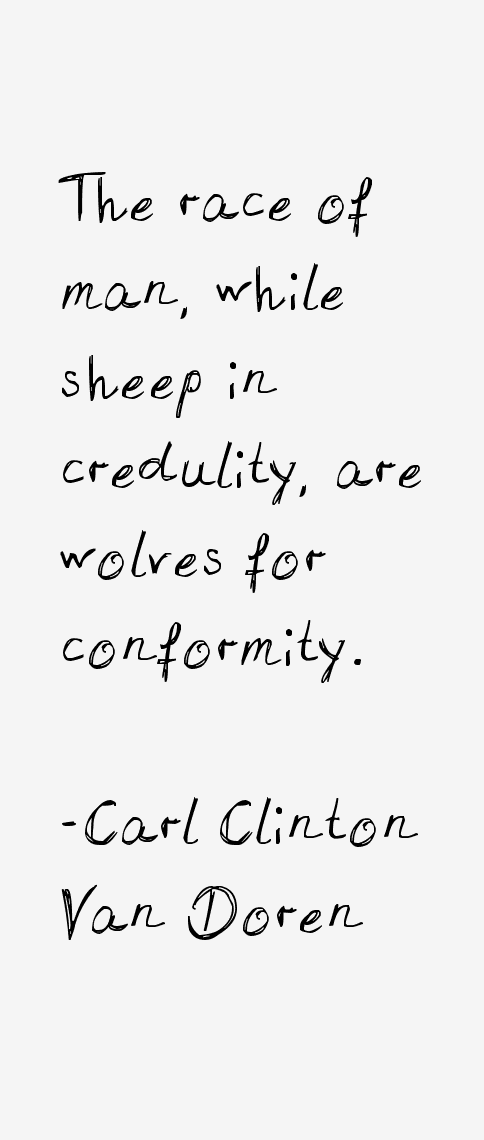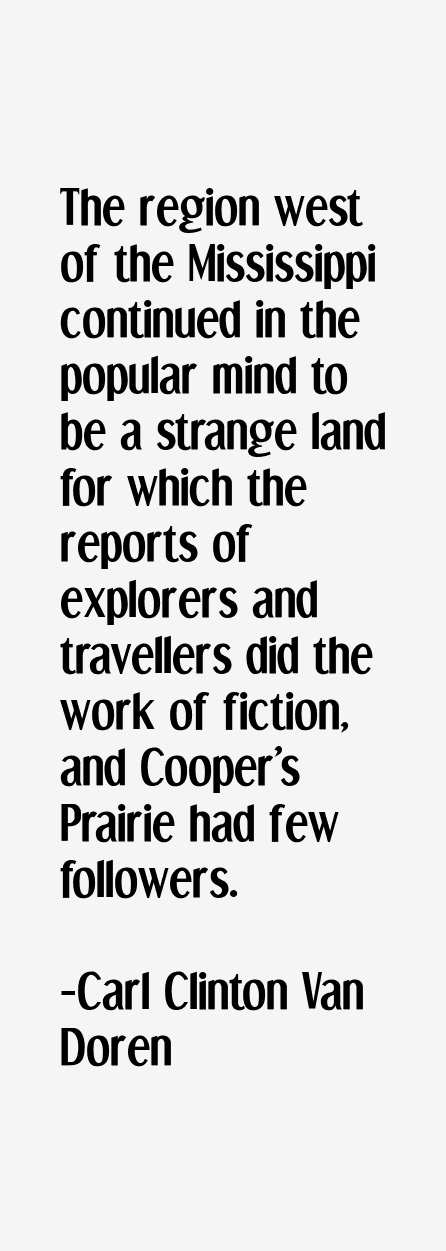Carl Clinton Van Doren Quotes & Sayings
11 most famous Carl Clinton Van Doren quotes and sayings (critic). These are the first 10 quotes we have.

“The race of man, while sheep in credulity, are wolves for conformity.”

“Although by 1851 tales of adventure had begun to seem antiquated, they had rendered a large service to the course of literature: they had removed the stigma, for the most part, from the word novel.”

“The region west of the Mississippi continued in the popular mind to be a strange land for which the reports of explorers and travellers did the work of fiction, and Cooper's Prairie had few followers.”
“The two most common charges against the older fiction, that it pleased wickedly and that it taught nothing, had broken down before the discovery, except in illiberal sects, that the novel is fitted both for honest use and for pleasure.”

“Guy Rivers, a conventional piece as regards the love affair which makes a part of the plot, is a tale of deadly strife between the laws of Georgia and a fiendish bandit.”

“In fiction, too, after the death of Cooper the main tendency for nearly a generation was away from the conquest of new borders to the closer cultivation, east of the Mississippi, of ground already marked.”
“Melville brought to the task a sound knowledge of actual whaling, much curious learning in the literature of the subject, and, above all, an imagination which worked with great power upon the facts of his own experience.”

“The first writers are first and the rest, in the long run, nowhere but in anthologies.”

“Familiar life, tending to sordidness, had been succeeded by remote life, generally idealized; historical detail had been brought in to teach readers who were being entertained.”
“IT is mere coincidence that Cooper was born in the year which produced The Power of Sympathy and that when he died Uncle Tom's Cabin was passing through its serial stage, and yet the limits of his life mark almost exactly the first great period of American fiction.”
Carl Clinton Van Doren Quotes Rating
No Ratings Yet
Leave A Comment
























